Child Neurology and Neurodevelopmental Disabilities Residency Training Programs | Alumni Testimonials
See what our child neurology residency alumni have to say about their experiences at Boston Children’s.
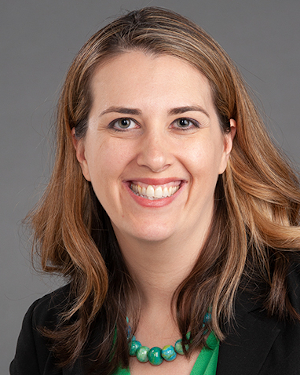
Lauren Doyle Strauss, DO
Director, Child Neurology Residency, Wake Forest School of Medicine
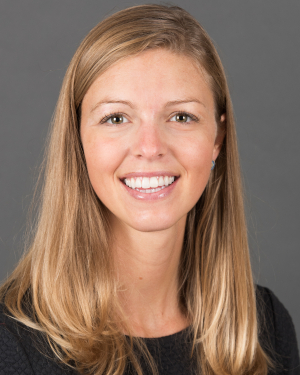
Leslie Hayes, MD
Neuromuscular Medicine Fellow, Mass General Brigham
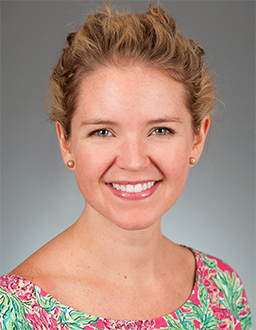
Molly Wilson-Murphy, MD
Attending Physician in Neuroimmunology and Neuroinfectious Diseases,
Boston Children’s Hospital
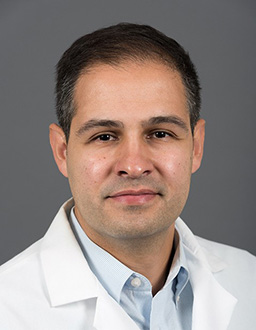
Darius Ebrahimi-Fakhari.
MD, PhD
Director, Movement Disorders Program, Boston Children’s Hospital
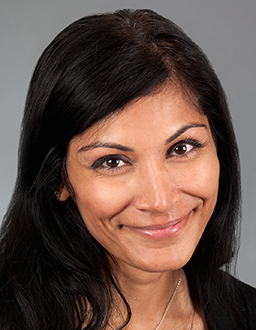
Archana Patel, MD, MPH
Assistant, Department of Neurology, Boston Children’s Hospital; Assistant Professor of Neurology, Harvard Medical School
See what our alumni think
What were your favorite aspects of training at Boston Children’s Hospital?
Lauren Doyle Strauss: One of my favorite aspects of training at BCH is that they can support any pathway that a resident decides. When I started residency, I did not have a clear vision of whether I wanted to specialize and where I saw myself in five years. I am now one of the few but growing community of academic pediatric headache specialists in the country. At the time I was deciding on fellowship, there were not many pediatric neurology applicants to headache medicine. Boston Children’s Hospital residency leadership supported me on this path that at the time was not well worn, setting up creative experiences to rotate with headache and pain in pediatric and adult settings.
Leslie Hayes: In short, it’s the patients and the colleagues. BCH has a large volume of patients which means residents get exposure to both bread-and-butter child neurology and lots of Zebras. But it’s my amazing co-residents, the accomplished and approachable faculty, and the collaboration with ancillary staff that create such an incredible training environment.
Darius Ebrahimi-Fakhari: Boston Children’s Hospital is a very special place for training in child neurology. What attracted me to this program was the symbiosis of excellent clinical care and high-quality research, the size of the program, and the commitment of the outstanding faculty to train the next generation of child neurologists, particularly physician-scientists. Residency is a very formative time and a lot of it comes from the people that surround you. I greatly enjoyed working and learning with my fellow neurology residents at Boston Children’s Hospital and the other Boston hospitals we rotate at. For me as a physician-scientist, the opportunities to become involved in translational research for rare diseases, starting with patients I met in clinic or on the wards, was one of my favorite aspects of training here.
Molly Wilson-Murphy: The depth and breadth of clinical experience training at Boston Children’s Hospital is invaluable. In completing both my pediatrics and neurology residencies at BCH, I came out incredibly well prepared for a career in child neurology. The patient population is part of that, but the incredible expertise of the faculty at Boston Children’s is another critical part of that. And the faculty is not only so very knowledgeable and accomplished but also wonderfully supportive and dedicated to teaching.
Archana Patel: We are a large and diverse program in terms of varying expertise and number of trainees and faculty — yet everyone is remarkably accessible and close. There are so many opportunities to learn and collaborate. I also think you cannot beat our program for the clinical volume you experience and ability to discuss interesting cases. You’ll see the most common to the rarest conditions with excellent discussion and learning for all. These are not only things I learned about training but strong reasons for why I stayed afterwards.
What did you enjoy most about living in Boston?
Doyle Strauss: My husband and I loved living in Boston. We had a condo in Jamaica Plain that was an easy walk to restaurants, the (Franklin Park) Zoo, the (Arnold) Arboretum, and Jamaica Pond. Every weekend, we made plans to explore. I miss grabbing takeout at one of my favorite restaurants and having a picnic watching one of the world’s most spectacular sunsets at Jamaica Pond. It was so easy to be spontaneous and enjoy great food and the outdoors.
Hayes: I moved to Boston for the first time when I started residency. Boston is a very livable city itself, but what I’ve really come to love are the areas around Boston. We do lots of day or weekend trips that include skiing in Vermont, hiking in New Hampshire, exploring cool cities like Portland, and visiting the beaches in Cape Cod or Rhode Island. As a resident, you sometimes only have half the weekend to yourself, so having all these great options within a few hours drive was amazing.
Ebrahimi-Fakhari: My wife and I enjoy many things about living in Boston — from its international atmosphere and cuisine to the local getaways like the Massachusetts beaches and the natural beauty of New England. Boston has a very “manageable” size yet has everything you expect from a big city.
Wilson-Murphy: I grew up in Massachusetts and went to both high school and college in Cambridge, right across the river from Boston. But spending five years in residency training in Boston, I got to see, enjoy, and take advantage of Boston in a way I hadn’t before. When you are in residency, you want to maximize your time off, to make it “count” and fill it with things that are important to you. To me that was exploring the city and surrounding areas with those who are important to me (including lifelong friends I met in residency), whether that be spending the weekend on Cape Cod, hiking in the Blue Hills, grabbing a meal out, having a picnic in the Arboretum, going to a Red Sox game, or a show or concert downtown. The great thing about Boston and New England is that so much is accessible — from beaches to mountains to all that city life has to offer.
Patel: Boston is a great big city that is manageable, in my opinion. It’s small enough that you can really walk across it in a few hours, but big enough to find everything you want to do. It lets you really have interests that are easy to do outside of work.
How did training at Boston Children’s influence your career path?
Doyle Strauss: My residency training had a huge impact preparing me to be a leader in education. The residency supported residents in practicing public speaking and understanding how to teach effectively. I created and gave lectures and facilitated small group learning experiences for my co-residents and residents in other specialties. We received resident talks from our BCH faculty who are known nationally for their lectures on special topics. At BCH, you learn how to teach by seeing the amazing faculty model their teaching styles while continuing to practice your own.
My experience as a chief resident also gave me the perspective on mentorship and administrative organization that makes a residency program successful. I felt comfortable joining the leadership of Wake Forest School of Medicine’s Child Neurology Residency Program only one year out of fellowship. I am involved nationally in headache medicine education through the American Headache Society teaching regularly in courses for headache medicine fellows and primary care physicians. I serve on the UCNS Headache Medicine Exam and Certification committee.
Hayes: I had a hint of interest in neuromuscular medicine prior to residency, but this was solidified during my outpatient rotations when we spent time in the multidisciplinary neuromuscular clinic. While neuromuscular disorders will be my primary career focus, training at Boston Children’s also fostered my interest in global neurology and medical education. The program and department leadership really supported the multiple facets of my clinical and research interests. I was given the time and financial support to do global neurology work in Rwanda and take a biostatistics course at Harvard Catalyst. Through my mentors at Boston Children’s, I realized that my career path does not need to be linear and I can pull from many interests to shape my own career.
Ebrahimi-Fakhari: I moved from Europe to the U.S. because I felt that career opportunities for physician-scientists were better developed here. My training at Boston Children’s did not disappoint me — I had the privilege to learn from some of the best clinicians that our field has to offer and to work with some of the smartest people in “my generation.” My biggest teachers, however, remained my patients and their families. Caring for children with serious neurological diseases taught me humility, compassion, patience, and resilience. I take pride in the trust that our patients put in us — they have often come a long way. Boston Children’s is a place where we “move the needle” for research in our field and for our patients. Where I want to make a difference is in translational research — from the clinic to the bench and back. (More about this can be found here.)
Wilson-Murphy: When I started medical school, I knew I wanted to be a doctor but not what specialty I would go into. I thoroughly enjoyed so many of my clinical rotations. Similarly, when I started residency, I was open to many areas within child neurology. However, I have always really enjoyed puzzles — the more complex, the better. During residency, I found myself drawn to neuroinflammatory disease, both autoimmune disease and neuroimmunology — but also neuroinfectious disease and frequent intersection of the two. As a result, I chose to pursue a combined neuroimmunology and neuroinfectious disease fellowship at Boston Children’s, where I spent time in neuroimmunology as well as in pediatric infectious disease, seeing patients with diseases such as anti-NMDA receptor encephalitis, CNS lupus, MOG antibody associated disease, pediatric onset multiple sclerosis, CNS vasculitis, neuro sarcoid, acute flaccid myelitis, CNS TB, neurocysticercosis, West Nile, Eastern equine encephalitis, Lyme, and Powassan virus encephalitis. I now follow a mix of neuroimmunology and neuroinfectious disease patients including special interests in arboviruses, various causes of encephalitis, and neurological complications of COVID-19.
Patel: I always had a strong interest in global and public health but had been very unclear how I was going to merge that with my career in child neurology. At the time I was in medical school, I was actually encouraged to pursue “more amenable” fields for global health as it didn’t seem to be a good fit with child neurology. But when I came to BCH, I was encouraged to explore how I could merge my interests — and given support and resources to do so, even as a resident. When there was no one in our department identified who was working in the part of the world I was interested in (East Africa), I was introduced to faculty in Pediatrics who found partners in Tanzania with whom I could work. This lay the foundation for my current career — everything started by the residency program not dismissing, but rather recognizing, my interests and encouraging me to pursue them.

